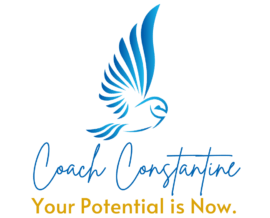Table of Contents
Introduction: The Personal Significance of Confidence
Hello, I’m Coach Constantine, a life coach specializing in the empowerment of young adults. Throughout my career, I’ve recognized a key ingredient that significantly influences the trajectory of a young adult’s life: confidence. This elusive yet essential quality is not about arrogance or blind optimism; it’s about self-belief, the kind that empowers one to face life’s challenges head-on. It’s about knowing your worth and your capabilities, even when faced with doubts and uncertainties.
Confidence for young adults is particularly crucial. This is a time of life filled with transitions and decisions—choosing careers, forming relationships, and carving out individual paths in life. Without confidence, these steps can seem daunting, if not impossible. It’s the difference between taking the leap into the unknown with a sense of hope and staying in the comfort zone for fear of failure. That’s why fostering confidence during this critical life stage is so important.
Section 1: Why Confidence Matters for Young Adults
Confidence is more than just a feel-good state; it’s a foundational aspect of mental well-being. It influences how young adults perceive themselves and interact with the world. When a young adult possesses confidence, they are more likely to pursue opportunities, take calculated risks, and stand up for their beliefs and values. This quality can be the deciding factor between seizing a life-changing opportunity and letting it slip away.
However, confidence doesn’t just affect personal growth; it has tangible benefits in many aspects of life. Scientific research underscores the link between confidence and mental health. Studies show that individuals with higher levels of confidence tend to have lower rates of anxiety and depression. They are also better equipped to handle stress and adversity, making them more resilient in the face of life’s inevitable challenges.
Yet, despite its importance, confidence is often misunderstood. Many confuse it with natural ability or inborn talent. In reality, confidence is a skill—one that can be developed and nurtured. It’s a product of experiences, mindset, and the willingness to step out of one’s comfort zone. This understanding is crucial for young adults as they navigate the complex journey of building and maintaining confidence.
Section 2: Understanding the Roots of Confidence for Young Adults
Reflecting on my early years, I remember the uncertainty that clouded my decisions. Like many young adults, my confidence was a fragile thing, easily swayed by external opinions and setbacks. It wasn’t until I faced these challenges head-on that I began to understand the true nature of confidence. It’s not a constant; it fluctuates, grows, and evolves with our experiences. Every challenge faced and every fear overcome adds a layer to our confidence.
Our upbringing plays a pivotal role in shaping our confidence. A supportive family environment, positive school experiences, and encouraging friendships contribute to a strong foundation of self-belief. Conversely, constant criticism, unrealistic expectations, and negative social interactions can undermine confidence. This is why as a life coach, I emphasize understanding and healing past wounds as a critical step in building confidence.
Moreover, the societal and cultural context we grow up in also influences our confidence levels. Societal norms, media representations, and cultural expectations can set standards that young adults may find challenging to live up to. Recognizing these external pressures is essential for developing a healthy sense of self-confidence that is not solely based on external validation but rooted in self-acceptance and personal values.
Section 3: The Psychology of Confidence
The field of Cognitive Behavioral Therapy (CBT) offers invaluable insights into the formation and development of confidence. CBT teaches us that our thoughts and beliefs about ourselves deeply influence our emotions and behaviors. Negative self-talk and limiting beliefs can erode confidence, creating a cycle of self-doubt and fear. By identifying and challenging these negative thoughts, young adults can begin to build a more positive and confident self-image.
Neuroscience adds another fascinating dimension to our understanding of confidence for young adults. Research in this field reveals how specific brain areas are involved in confidence, decision-making, and risk assessment. For instance, activity in the prefrontal cortex, a region involved in planning and personality development, is closely linked to confidence levels. This scientific understanding empowers young adults to see confidence not just as a feeling, but as a tangible, measurable, and improvable aspect of their brain function.
Moreover, neuroplasticity, the brain’s ability to change and adapt, means that confidence can be cultivated and strengthened over time. Just as muscles grow stronger with exercise, neural pathways associated with confidence can be reinforced through practice and positive experiences. This neurological perspective provides a powerful message to young adults: confidence is not fixed; it can be developed and enhanced throughout one’s life.

Section 4: Building Confidence for Young Adults: Strategies and Techniques
Goal setting is a powerful tool in the confidence-building arsenal. It’s not just about achieving big, life-changing goals, but also about recognizing and celebrating the small victories along the way. Each small success builds a sense of accomplishment and reinforces self-belief. In my coaching sessions, I encourage young adults to set achievable goals, whether it’s improving a skill, completing a project, or making new connections. Celebrating these achievements, no matter how minor they may seem, is crucial for building confidence.
However, building confidence for young adults is not just about celebrating successes; it’s equally about how one handles failures. In my experience, the most confident individuals are those who have learned to view failures not as a reflection of their worth, but as valuable learning experiences. They understand that failure is an inevitable part of growth and a stepping stone to success. This mindset shift, from fearing failure to embracing it as a teacher, is a key element in developing lasting confidence.
In addition, building confidence often involves stepping out of one’s comfort zone. This might mean taking on new challenges, trying new activities, or even changing one’s daily routine. Each new experience, even if it doesn’t result in immediate success, is an opportunity to learn and grow. It’s about understanding that confidence is not the absence of fear or doubt, but the ability to move forward in spite of them. Encouraging young adults to take these steps, to experiment and explore, is a crucial part of the confidence-building process.
Section 5: Real-Life Stories of Confidence Transformation
Alex’s story is just one of many that illustrate the transformative power of confidence. Another inspiring example is that of Sara, a young woman who came to me feeling lost and unsure of her direction in life. Through our sessions, Sara learned to identify her strengths and interests, which she had previously overlooked. We worked on building her self-esteem by setting small, achievable goals and gradually stepping out of her comfort zone. Sara’s journey was not without its challenges, but with each small step, she gained confidence. Today, she is pursuing a career aligned with her passions and has a newfound belief in her capabilities.
These stories of transformation are not just anecdotal evidence; they are backed by scientific research that emphasizes the impact of confidence on personal development. For instance, studies have shown that increased confidence leads to improved motivation and persistence, key factors in achieving one’s goals. These real-life examples serve to illustrate the profound impact that building confidence can have on a young adult’s life, shaping their future in profound and lasting ways.
Section 6: The Role of Physical Health in Confidence for Young Adults
The link between physical health and confidence is well-documented. Regular physical activity not only improves body image but also has a positive effect on mood and self-esteem. Exercise stimulates the release of endorphins, known as the body’s natural mood lifters, which can lead to an increased sense of well-being and confidence. I often advise young adults to incorporate physical activity into their routines, not just for physical health benefits but also for the mental and emotional upliftment it provides.
Nutrition, too, plays a crucial role in mental health and, by extension, confidence. A balanced diet that provides essential nutrients contributes to overall well-being, impacting mood, energy levels, and cognitive function. Emerging research in nutritional psychology suggests that certain foods can influence brain function and, consequently, feelings of self-assurance and confidence. Encouraging young adults to pay attention to their diet is part of a holistic approach to building confidence.
Section 7: Cultivating Confidence in Daily Life
Incorporating confidence-building habits into daily routines can be a game-changer for young adults. Simple practices like starting the day with positive affirmations, maintaining a gratitude journal, or engaging in mindfulness exercises can reinforce a positive self-image and boost confidence. These habits help to create a positive feedback loop, where increased confidence for young adults leads to more positive experiences, which in turn further boosts confidence.
However, it’s also important to recognize when additional support is needed. Sometimes, the journey to building confidence requires guidance from mentors, therapists, or life coaches. Seeking support is not a sign of weakness; it’s a step towards empowerment. As a coach, I provide a safe space for young adults to explore their thoughts and feelings, offering guidance and support to help them navigate their confidence journey. This support can be invaluable in overcoming obstacles and accelerating personal growth.
Conclusion: Embarking on Your Confidence Journey
Confidence for young adults is a journey, not a destination. It’s about embracing both the successes and the setbacks and learning from them. For young adults, developing confidence is a critical step towards leading a fulfilling and successful life. The journey might be challenging, but the rewards are immeasurable. With the right mindset, tools, and support, anyone can cultivate the confidence they need to thrive.
Call to Action: Take the First Step Towards Confidence Today
If you’re a young adult struggling with confidence, know that you’re not alone. As a life coach, I’m here to support you on your journey. Together, we can explore personalized strategies and leverage both scientific insights and practical tools to help you build the confidence you need to thrive. Let’s embark on this journey together and unlock your full potential.

